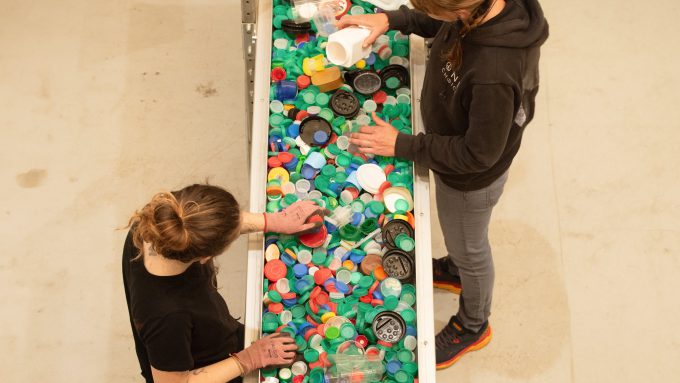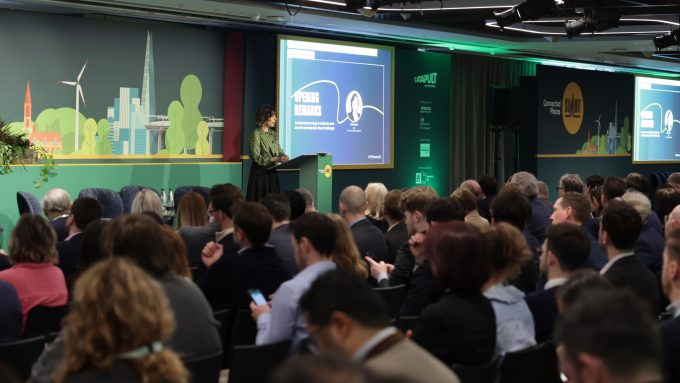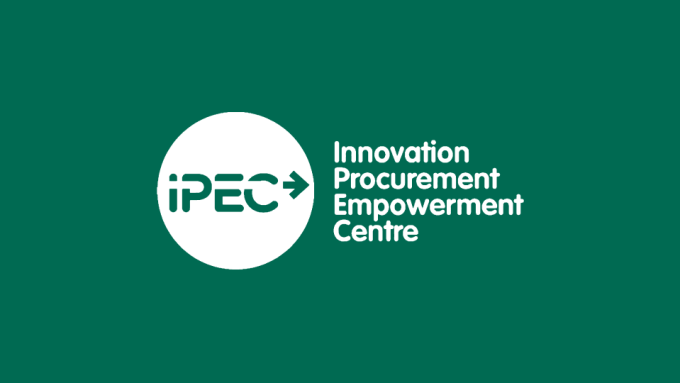
Dorset recycler raises finance to boost highway sustainability

Turning unwanted mixed plastics into useful materials is the aim of start-up Circular11 which attracted £100,000 of funding after showcasing its idea to financiers at a Net Zero Investor Day, organised by Connected Places Catapult.
Co-founders Ben Gibbons and Connor Winter turned up at the event needing to raise more investment, but had a looming deadline to secure their funds.
“We met several angel investors who were interested in what we offered and wanted to come on board. But we had to tell them our funding round was closing that week. Fortunately, one of them signed the next day.”Ben Gibbons, Co-founder, Circular11
“It was one of the best events I’ve ever been to,” he recalls. “Everyone had such a great energy about them, and there was a good mix of start-ups and investors interested in low carbon innovation.”
The pair used the money to grow their company and set up a new manufacturing facility in Dorset. They currently process low-grade waste plastic to create a range of outdoor furniture and landscaping products such as picnic tables, benches and planters.
Now the company is currently working alongside National Highways to develop fencing structures from recycled plastics for use alongside the strategic road network. It was also one of four firms chosen to trial its product last November as part of National Highways’ Accelerating Low Carbon Innovation programme, delivered by Connected Places Catapult.
“We work with waste facilities to take plastics that would otherwise go for incineration and turn them into low carbon infrastructure,” explains Ben. “Our mission is to create a circular economy that is accessible to all, and remake plastic into something that will last a lifetime.”
They started out as “young and naïve” entrepreneurs, taking out personal loans to support the business. “We used a very risky funding route, which I wouldn’t recommend to others, but we don’t regret it. The pair secured an Innovate UK grant, won a couple of funding competitions and raised £120,000 after two years. “But there were clauses that meant we had to raise another £100,000 within six months, so the event at the Shard came just at the right time.”

Creating a new market for unwanted plastic
Ben explains that the catalyst for creating the business was to help address the “fundamental architecture of the recycling system” which he describes as “broken”. According to Circular11, around 70% of unwanted plastic is disposed of at landfill, burnt or sent abroad because different types of plastic cannot be separated easily. But even if the material is sent for recycling, up to half is thought to be rejected.
“The recycling system only really works when there is huge volumes; there are so many plastics that get missed and could technically be recycled, but do not have a large end market because it is often cheaper to produce new products,” Ben says. “Our aim has always been to take the most difficult to work with material that comes direct from the recycling facilities. Half of the challenge is finding creative end markets for it.”
The process of developing new products from waste plastic involves the use of low-carbon strengthening agents to create composite materials that can be turned into a variety of durable products. Three years ago, Ben and Connor bought an old bread delivery van they nicknamed Hovis, and installed a shredding machine, washing facilities and materials testing devices to create a small manufacturing line; experimenting with different materials to see what could and couldn’t be recycled. They started selling products in 2022, before raising £500,000 of investment last year.
At first the company sourced waste plastic from the local community, working with local churches and schools at a community farm near Bournemouth called High Mead Farm. Then they began collecting rejected material from recycling plants that normally goes to incineration. The next step for the firm is to collect plastic waste directly from large businesses for processing inside its large new industrial barn.
Intelligence regarding materials used
Ben adds that Circular11 not only manufactures recycled products but provides a full audit trail of where the materials have come from. “People told us they really want to know where the waste material originated, and the amount that had been saved from being incinerated or dumped.”
The firm has also developed machine learning software that assesses the different types of plastic to be processed and how suitable it may be for certain recycled products. “The difficult thing with low-grade plastic is not just making it perform well, but making it perform consistently. So we need to adjust every part of the process all of the time, depending on what we are working with. We may have 100 various types of plastic arriving and 15 outputs, and different plastics will affect each other in very complex ways.”
The software looks for patterns in the data that comes in, allowing the company to adjust what it manufactures to suit the waste streams that come in.
Circular11 is currently valued at £3 million and the company has eight investors. The co-founders were supported in their fundraising by strategic consultant Pohco, who they were introduced to on an InnovateUK Edge programme. “They helped us to create financial models that made clear what the underlying drivers were for our unit economics, and how they would change at scale,” Ben says. “They gave us more of an understanding of our business and its potential than we had been able to achieve in any other way.”
Ben says last year’s Investor Day at the Shard “got us across the finish line of that particular round of funding” but adds “the difficult thing with raising money is it can be so emotionally stressful and exhausting.
“Last year was challenging, but we have managed to expand our facilities and pay for new, much larger machinery.
“Now we are no longer focused on raising money,” he adds. “We want to be in profit before raising again. If there is one thing I have learnt from our fundraising journey, it is you really want to be in a position of strength. And when we fundraise, we want to make sure the technology is exactly where we want it to be, and we have a large pipeline of orders.”
Join the SME Network at Connected Places Catapult.





